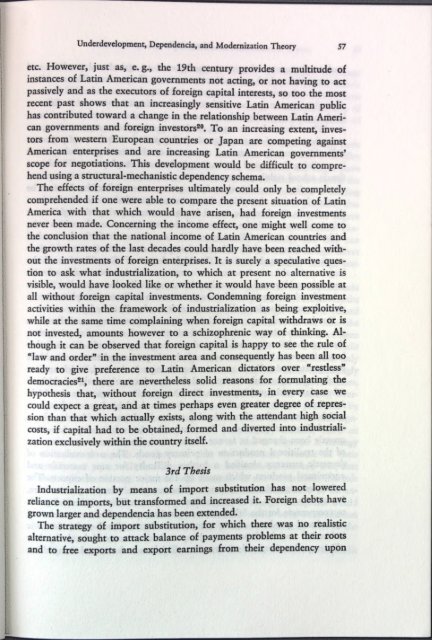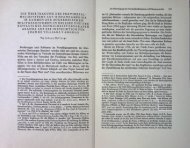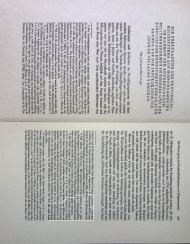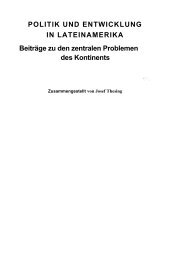9_Law and State_Volume 17
You also want an ePaper? Increase the reach of your titles
YUMPU automatically turns print PDFs into web optimized ePapers that Google loves.
Underdevelopment, Dcpcndcncia, <strong>and</strong> Modernization Theory 57<br />
etc. However, just as, e.g., the 19th century provides a multitude of<br />
instances of Latin American governments not acting, or not having to act<br />
passively <strong>and</strong> as the executors of foreign capital interests, so too the most<br />
recent past shows that an increasingly sensitive Latin American public<br />
has contributed toward a change in the relationship between Latin American<br />
governments <strong>and</strong> foreign investors20. To an increasing extent, investors<br />
from western European countries or Japan are competing against<br />
American enterprises <strong>and</strong> are increasing Latin American governments’<br />
scope for negotiations. This development would be difficult to comprehend<br />
using a structural-mechanistic dependency schema.<br />
The effects of foreign enterprises ultimately could only be completely<br />
comprehended if one were able to compare the present situation of Latin<br />
America with that which would have arisen, had foreign investments<br />
never been made. Concerning the income effect, one might well come to<br />
the conclusion that the national income of Latin American countries <strong>and</strong><br />
the growth rates of the last decades could hardly have been reached without<br />
the investments of foreign enterprises. It is surely a speculative question<br />
to ask what industrialization, to which at present no alternative is<br />
visible, would have looked like or whether it would have been possible at<br />
all without foreign capital investments. Condemning foreign investment<br />
activities within the framework of industrialization as being exploitive,<br />
while at the same time complaining when foreign capital withdraws or is<br />
not invested, amounts however to a schizophrenic way of thinking. Although<br />
it can be observed that foreign capital is happy to see the rule of<br />
“law <strong>and</strong> order” in the investment area <strong>and</strong> consequendy has been all too<br />
ready to give preference to Latin American dictators over “resdess”<br />
democracies21, there are nevertheless solid reasons for formulating the<br />
hypothesis that, without foreign direct investments, in every case we<br />
could expect a great, <strong>and</strong> at times perhaps even greater degree of repression<br />
than that which actually exists, along with the attendant high social<br />
costs, if capital had to be obtained, formed <strong>and</strong> diverted into industrialization<br />
exclusively within the country itself.<br />
3rd Thesis<br />
Industrialization by means of import substitution has not lowered<br />
reliance on imports, but transformed <strong>and</strong> increased it. Foreign debts have<br />
grown larger <strong>and</strong> dependencia has been extended.<br />
The strategy of import substitution, for which there was no realistic<br />
alternative, sought to attack balance of payments problems at their roots<br />
<strong>and</strong> to free exports <strong>and</strong> export earnings from their dependency upon
















